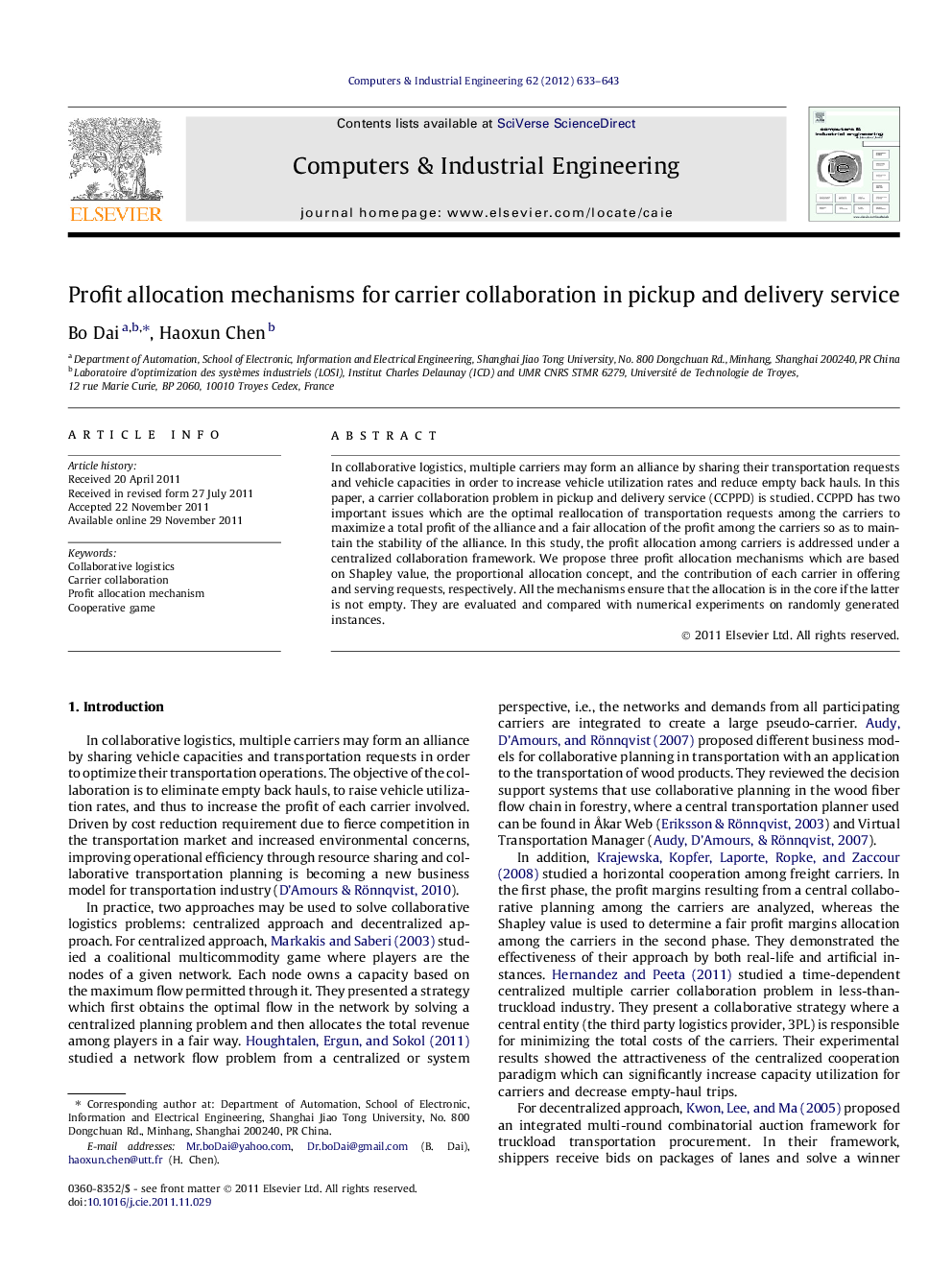| Article ID | Journal | Published Year | Pages | File Type |
|---|---|---|---|---|
| 1135435 | Computers & Industrial Engineering | 2012 | 11 Pages |
In collaborative logistics, multiple carriers may form an alliance by sharing their transportation requests and vehicle capacities in order to increase vehicle utilization rates and reduce empty back hauls. In this paper, a carrier collaboration problem in pickup and delivery service (CCPPD) is studied. CCPPD has two important issues which are the optimal reallocation of transportation requests among the carriers to maximize a total profit of the alliance and a fair allocation of the profit among the carriers so as to maintain the stability of the alliance. In this study, the profit allocation among carriers is addressed under a centralized collaboration framework. We propose three profit allocation mechanisms which are based on Shapley value, the proportional allocation concept, and the contribution of each carrier in offering and serving requests, respectively. All the mechanisms ensure that the allocation is in the core if the latter is not empty. They are evaluated and compared with numerical experiments on randomly generated instances.
► We propose three mechanisms for profit allocation in carrier collaboration. ► The first (second) is based on Shapley value (proportional allocation concept). ► The third considers each carrier’s contribution in offering and serving requests. ► The fairness of profit allocation is interpreted in different ways in the mechanisms. ► These mechanisms provide carriers with more options in allocating their profits.
